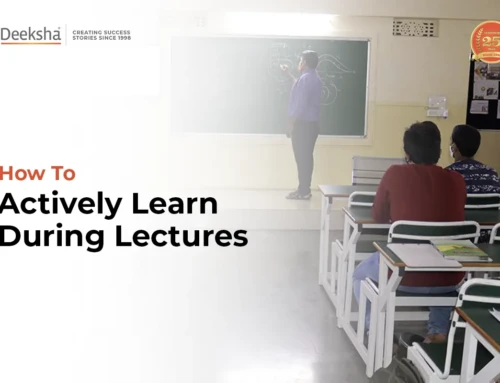Guidelines for CBSE School Admission 2024-25
The Central Board of Secondary Education (CBSE) is India’s premier school education board. It sets the standards of education that are followed by most schools in the country. The CBSE is responsible for the formulation of guidelines and policies related to school admissions. Every year, the CBSE releases guidelines for school admissions for the upcoming academic year. This year, the CBSE has issued guidelines for CBSE school admission 2024-25.
Important Guidelines for CBSE School Admission 2024-25
- Application Process: All schools affiliated with the CBSE must have an online facility for school admission. This will ensure that the process is completed in a timely and efficient manner. The school must also ensure that the admission process is conducted in a fair and transparent manner.
- Age Criteria: All applicants must meet the age criteria as specified by the school authorities. The minimum age for admission to any school affiliated with the CBSE is five years for the academic year 2024-25. This age criterion ensures that all students are of the same age and have the same learning capabilities.
- Academic Eligibility: All applicants must have passed the previous academic year with satisfactory grades. Students who have not completed their previous academic year can be considered for admission provided they submit additional documents such as transfer certificates, certificates, etc. This ensures that all students have the necessary academic background to pursue their studies in the new school.
- Entrance Test: Most schools affiliated with the CBSE require applicants to take an entrance test. The entrance test will be conducted to assess the academic and intellectual abilities of the student. This ensures that all students have the necessary skills and knowledge to pursue their studies in school.
- Documents Required: All applicants must submit a valid proof of residence, birth certificate, progress report, transfer certificate, and other documents as required by the school authorities. This is necessary to ensure that the student is eligible for admission and that all the necessary documents are submitted.
- Admission Fee: The admission fee must be paid as specified by the school authorities. The fee must be paid at the time of admission, and no refunds will be made after the admission is complete. This ensures that all students admitted to the school have paid the admission fee.
- Selection of Students: The selection of students will be based on the entrance test scores, academic performance, and other criteria as specified by the school authorities. This ensures that only the most suitable students are admitted to the school.
- Admission Process Deadline: All applicants must complete the admission process before the specified deadline. All documents must be submitted before the deadline, and no applications will be considered after the deadline. This ensures that the admission process is completed on time.
- Withdrawal of Admission: Once the admission is completed, the school authorities will not refund the admission fee if the student withdraws his/her admission. This ensures that the admission is taken seriously and the student is committed to completing the academic year.
- Appeal Process: If a student is not selected for admission, they can appeal to the school authorities. The school authorities will review the appeal and decide on admission. This ensures that all students have a chance to appeal their admission decision if they feel they were not selected fairly.
CBSE Age Criteria For Class 10 2024-25
For a student to be eligible for Class 10 in the 2024 academic year under the CBSE (Central Board of Secondary Education) criteria, they typically should have completed the previous years of schooling leading up to Class 10. The general guideline often implies that students are around 14-16 years old when they enroll in Class 10.
Below is a table representing the typical birth year and estimated age as of March 2024 for students from Class 1 through Class 10 under the CBSE guidelines. This table assumes students have advanced one grade level each year without repetition or acceleration:
| Class | Birth Year | Estimated Age as of March 2024 |
| Class 1 | 2018 | 6 |
| Class 2 | 2017 | 7 |
| Class 3 | 2016 | 8 |
| Class 4 | 2015 | 9 |
| Class 5 | 2014 | 10 |
| Class 6 | 2013 | 11 |
| Class 7 | 2012 | 12 |
| Class 8 | 2011 | 13 |
| Class 9 | 2010 | 14 |
| Class 10 | 2009 | 15 |
Explanation of the Guidelines for CBSE School Admission 2024-25
The Central Board of Secondary Education (CBSE) has released guidelines for school admission in the academic year 2024-25. These guidelines are designed to ensure that the admission process is carried out in a fair and transparent manner and that all applicants meet the required criteria. The admission process includes an online application, age criteria, academic eligibility, entrance test, documents required, admission fee, selection of students, admission process deadline, withdrawal of admission, and appeal process.
All applicants must have passed the previous academic year with satisfactory grades. The age criteria for admission is 5 years for the academic year 2024-25. An entrance test will be conducted to assess the academic and intellectual abilities of the student. All applicants must submit a valid proof of residence, birth certificate, progress report, transfer certificate, and other documents as required by the school authorities. The admission fee must be paid as specified by the school authorities, and no refunds will be made after the admission is complete. The selection of students will be based on the entrance test scores, academic performance, and other criteria as specified by the school authorities. Finally, all applicants must complete the admission process before the specified deadline, and no applications will be considered after the deadline.
These guidelines are issued to ensure that the admission process is conducted in an efficient and transparent manner. All applicants must meet the criteria specified by the school authorities in order to be considered for admission. Furthermore, all applicants must submit the necessary documents and pay the admission fee before the deadline. Following these guidelines will help ensure that the admission process is conducted in a fair and equitable manner.
Conclusion
These are the important guidelines for CBSE School Admission 2024-25. All students and parents must be aware of these guidelines before applying for admission. The CBSE has set these guidelines to ensure that the admission process is fair and transparent.
Important Links for students in CBSE board
| CBSE Sample Papers | CBSE Notes |
| CBSE Previous Year Question Papers | Class 10 CBSE Sample Papers |
| CBSE Syllabus For Class 10 | CBSE Question Paper Class 10 |
Frequently Asked Questions On CBSE School Admission
Age Criteria and Admission Requirements for CBSE Schools
Understanding the age criteria and admission requirements for CBSE schools is crucial for parents and guardians as they plan their child’s educational journey. These guidelines help ensure that students enter at an appropriate developmental stage and meet all necessary conditions for a smooth educational experience.
What is the age limit for CBSE admission?
The Central Board of Secondary Education (CBSE) does not specify a universal age limit for admission to schools under its jurisdiction, as this may vary depending on local regulations and the school’s policies. Generally, the age criteria are established for entry-level classes like nursery, LKG, or 1st standard.
What is the age criteria for LKG in CBSE schools?
For LKG (Lower Kindergarten) admission in CBSE schools, children are typically expected to be at least 3 years old by March 31 of the academic year they wish to enroll in. However, this can vary slightly based on local state rules or specific school policies.
What is the age criteria for 1st standard in CBSE schools?
In CBSE schools, the age criteria for admission to the 1st standard generally require the child to be 6 years old by March 31 in the year of admission, aligning with the common age range for this grade level across most Indian schools.
What is the age limit for 10th class in CBSE?
There is no specific upper age limit set by the CBSE for admission into the 10th class. However, students are usually expected to have completed the necessary preceding years of schooling, ensuring they meet prerequisite educational standards.
How to get admission in CBSE school?
Admission to a CBSE school typically involves submitting an application along with necessary documents such as birth certificates, previous school records, and residential proof. Parents should visit the school’s website or contact the administration directly to understand specific admission procedures and timelines.
How to get admission in class 11 in a CBSE school?
Gaining admission into Class 11 at a CBSE school usually requires students to have passed the Class 10 board exams with requisite marks, particularly in subjects that align with their chosen stream (Science, Commerce, or Humanities). Schools may also have additional criteria such as entrance exams or interviews.
Is a Transfer Certificate (TC) mandatory for admission in CBSE school?
Yes, a Transfer Certificate (TC) is generally mandatory for students seeking admission to a CBSE school, especially if they are transferring from another school. This certificate is crucial as it verifies the student’s previous school enrollment and academic record.
What is the minimum age to appear in CBSE 10th exam?
The Central Board of Secondary Education (CBSE) does not enforce a strict minimum age requirement for appearing in the 10th class board exams. Typically, students are around 14 to 16 years old when they take these exams, but the essential criterion is that the student must have successfully completed the previous grades leading up to Class 10.
What class should a 5-year-old be in?
For a 5-year-old, the appropriate class in most educational systems, including many CBSE schools, would be either Kindergarten or UKG (Upper Kindergarten), depending on the child’s birth date and the specific cutoff dates used by the school or state for school entry. These early educational stages focus on basic learning and social skills, preparing children for more structured schooling.
Policy and General Queries
Navigating through educational policies and understanding the framework of the CBSE schooling system are essential for students, parents, and educators alike. Keeping abreast of changes in policies and the operational definitions of educational institutions helps in making informed decisions regarding one’s educational journey.
What is new in the education policy 2024?
As of the last update, the specifics of the education policy for 2024 have not been fully detailed publicly. However, changes typically focus on enhancing learning outcomes, incorporating technology in education, and aligning with the National Education Policy (NEP) 2020, which emphasizes flexibility in choosing subjects, holistic multidisciplinary education, and the integration of vocational education from a young age.
What defines a CBSE school?
A CBSE (Central Board of Secondary Education) school is defined by its affiliation with the CBSE, a national level board of education in India, governed by the Ministry of Education. These schools follow the curriculum and guidelines set forth by the CBSE, primarily designed to prepare students for the All India Secondary School Examination (AISSE) at the end of Class 10 and the All India Senior School Certificate Examination (AISSCE) at the end of Class 12.
Is nursery education mandatory in India?
Nursery education is not mandatory in India. The formal education system in India typically begins at the age of 6 with Grade 1, as per the Right to Education Act. Nursery and pre-nursery classes are available for younger children but attending these is not a legal requirement.
Is the 10th CBSE board exam canceled for the coming year?
There has been no official announcement regarding the cancellation of the 10th CBSE board exams for the year. These exams are crucial for educational progression in India, and any decision to cancel them would typically be influenced by extraordinary circumstances and communicated well in advance by the CBSE.









Get Social